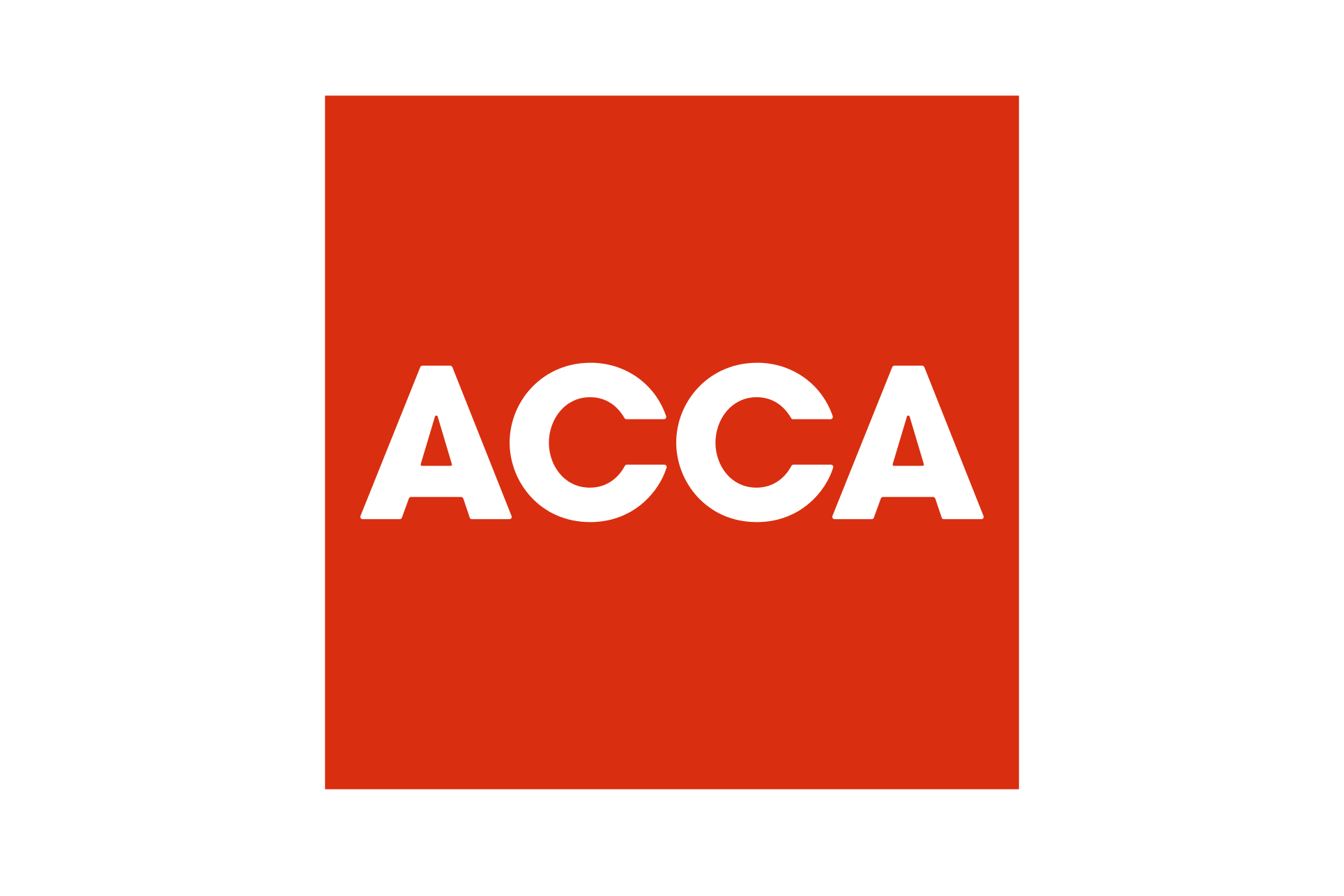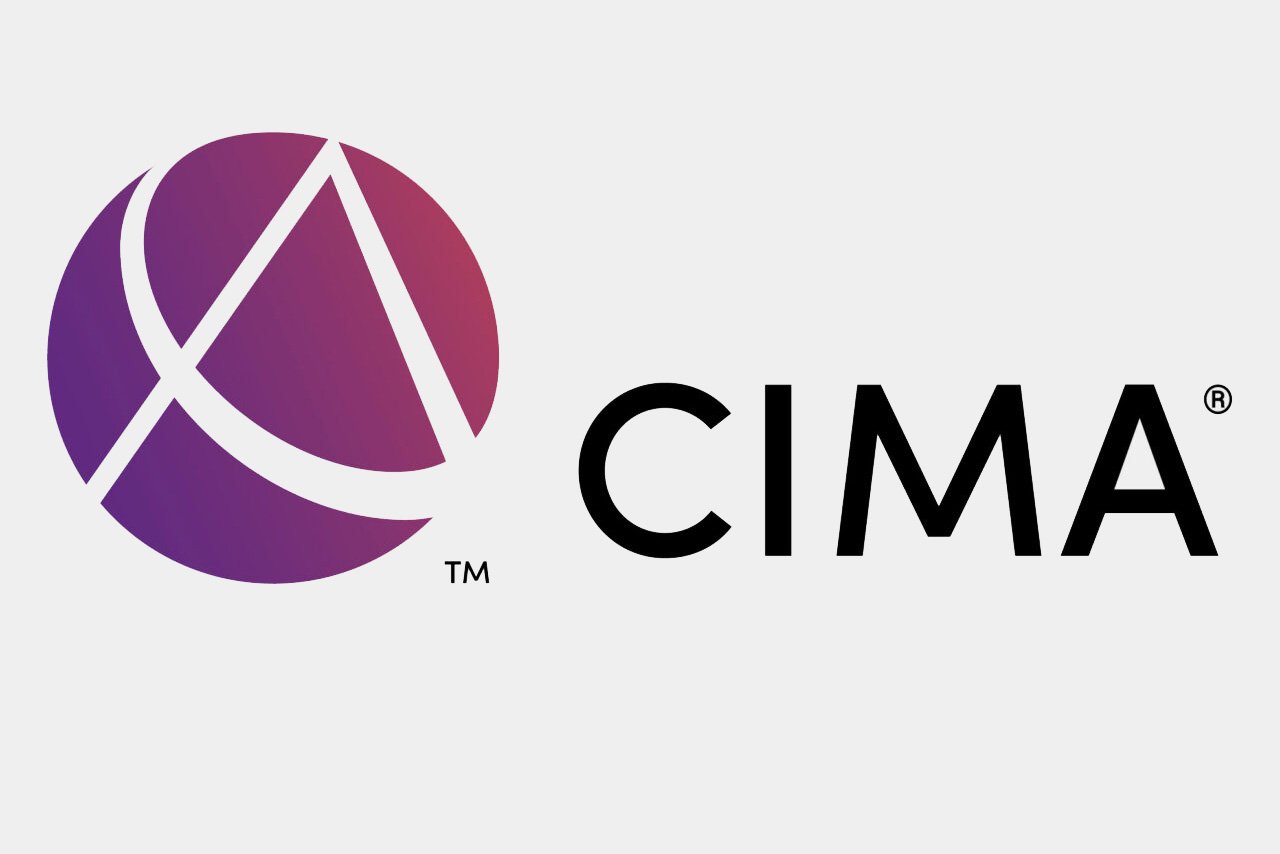Earn your Accounting and Finance degree in just three years and receive exemptions from select ACCA and CIMA qualifying exams.
Apply now to start in October 2025


Duration
3 years
Study mode
Full-time, Lectures, seminars and workshops 3 days per week
Start date
October
Awarding Body
Wrexham University
Fees year 1
Home: £9,250
International: £12,000
Location
Taught at our Central London campus
UCAS code
AF03
Entry Requirements
112 UCAS tariff points
What’s it like studying accounting and finance
I enjoy everything I learn on my Accounting and Finance course. It feels like every day I am learning something new and building my confidence. When you ask for help, you immediately get the support you need. I haven’t missed a single lesson, because I just enjoy being here.

Course Modules
Each module is worth 30 credits and all Level 4 modules are mandatory. There are four Level 4 modules and you will complete two modules in your first term of Year 1, and two in your second term of Year 1.
This module explores the fundamentals of the modern business and economic environment that organisation operate in so that you can appreciate the challenges they may face. We’ll cover the various types of business organisations, their structures and functions, key stakeholders, governance, external environmental factors, organisational culture, and ethical behaviours. You’ll learn how accounting and reporting systems play a crucial role in solving real business problems, and uncover IT-related solutions for efficient management and internal control.
The concepts and analytical tools covered in this module not only provide a thorough understanding of economic issues but also stimulate your reasoning and conceptual awareness.
Assessment
| Written assignment | 40% |
| Final examination | 60% |
This module provides a comprehensive understanding of fundamental concepts and theories that you can apply to a range of financial accounting matters. You’ll learn the regulatory and conceptual framework that underpins financial accounting, as well as the techniques and skills required to prepare essential financial statements. We’ll focus on three key statements:
- the statement of comprehensive income
- the statement of financial position
- and the statement of cash flow.
By the end of this module, you will possess the tools needed to analyse and interpret financial information accurately and have a solid foundation in financial accounting, enabling you to apply your skills to real-world scenarios and make informed decisions.
Assessment
| Portfolio | 40% |
| Final examination | 60% |
In this module, we’ll explore management accounting, providing you with a deep understanding of the role and importance of cost and management accounting techniques in modern business. You’ll learn how to apply these techniques to support management in planning, measuring, controlling, and monitoring business performance in a variety of contexts.
We’ll also consider the importance of cost determination, pricing, and volume measures for global organisations, and you’ll gain insight into resource allocation and how to maximise benefits for the organisation. By the end of this module, you’ll have the skills and knowledge you need to evaluate business performance and make informed decisions that drive success.
Assessment
| Group project | 40% |
| Final examination | 60% |
Business transactions and commercial entities are frequently compounded by the principles of law and ethics. The fundamental principles that underpin financial law and governance are examined in this module which will enable you to understand the management, administration, and regulation of a company. How these issues impact the duties of directors and company meetings and resolutions will also be considered providing you with an understanding of the legal aspects of corporate governance.
Assessment
| Written assignment | 40% |
| Final examination | 60% |
Each module is worth 30 credits and all Level 5 modules are mandatory. There are four Level 5 modules and you will complete two modules in Term 1 of Year 2, and two modules in Term 2 of Year 2.
This module will help you to develop expertise in applying quantitative techniques to the study and practice of accounting and finance. This module takes place in a practical operational context where you can apply accounting techniques acquired in earlier modules of study. You will also be able to critique the frameworks relating to the design and operation of an integrated accounting system.
Assessment
| In-class test | 50% |
| Coursework | 50% |
You’ll apply accounting standards and theoretical frameworks to prepare financial statements for entities, including groups, which conform to international accounting standards in the Financial Reporting and Practice module. You will critically discuss and apply conceptual and regulatory frameworks for financial reporting, prepare and present financial statements, account for business combinations and critically analyse and interpret financial reports of businesses.
At the end of this module, you will be able to prepare consolidated financial statements of a group, consisting of subsidiaries and associated companies after adjusting for fair value, unrealised profits, intra-group balances, pre and post-acquisition, non-controlling interest, and goodwill in accordance with local and international standards.
Assessment
| Portfolio | 40% |
| Final examination | 60% |
The UK taxation system’s impact on individuals and businesses, as well its conceptual and computational principles are examined in this module. Covering the principles of UK tax law and practice, including the overall function and purpose of taxation in a modern economy, the obligations of individuals and corporations and the computation of tax liabilities are all considered. You will also be introduced to tax planning and the taxation principles of VAT and IHT.
Assessment
| Case study | 40% |
| Final examination | 60% |
Financial management requires you to understand corporate financial strategy and analyse strategic financial information in order to make financial decisions and carry out core finance functions. This module will empower you to understand financial decisions the context of corporate businesses’ tactical need for survival and to dissect the four key financial management decisions of investing, financing, asset management and dividend policy.
Assessment
| Portfolio | 40% |
| Final examination | 60% |
Term 1
Each module is worth 30 credits. In addition to a core module, students must take at least one of the following finance modules – International Finance, or Mergers and Acquisitions – during any term. In Term 1, you are also required to take one of the four available Level 6 elective modules.
In a term when you are not taking either of the two finance modules, you may choose from any other elective module on offer.
All optional modules are delivered subject to sufficient student demand. If an optional module cannot be delivered, you may complete an Independent Learning Module, focusing your study on the content of the unavailable module.
How to conduct audits, both internal and external, that conform to professional regulatory frameworks and their usefulness to society generally are considered in this module. At the end of this module, you should be able to identify and describe the systems, processes and principles which seek to ensure that internal and external auditing promote good corporate governance and achieve corporate objectives.
Assessment
| Case study | 60% |
| Final examination | 40% |
There are a multitude of strategic factors that affect an international organisation’s operations. Multinational financial management relies on your ability to assess the current global business environment and design appropriate international finance management strategies. You will develop a greater understanding of multinational financial arrangements on this module and, through the interpretation, uses, and analysis of strategic financial information, examine the strategic reasons for the existence of multinationals.
You can also take this module in Term 2 if you would prefer.
Assessment
| Group project | 40% |
| Final examination | 60% |
Mergers and acquisitions demonstrate the amalgamation of many corporate finance concepts and techniques such as valuation, to practical and active developments in the corporate business world. In this module you will consider mergers and acquisitions phenomenon from various angles: strategic, financial, public policy. You will also identify and assess key factors that explain the success or failure of companies, as well as gain practical insights through case studies into the workings of investment bankers, financial professionals, and management in the formulation of Financial Restructuring & Reorganisation Policy.
You can also take this module in Term 2 if you would prefer.
Assessment
| Group project | 40% |
| Final examination | 60% |
Term 2
Each module is worth 30 credits and it is compulsory to take at least either the International Finance, or Mergers and Acquisitions modules in any of the terms in Year 3. You will also complete one of the following four optional Level 6 modules in Term 2 of Year 3.
All optional modules are delivered subject to sufficient student demand.
Businesses need to manage and be aware of environmental, behavioural and organisational factors in order to navigate financial risk factors and ensure business survival, total quality management, and prosperity. Finance Managers’ professional judgements can help businesses to achieve these goals by applying relevant knowledge and skills to strategic planning.
This module explores how to select and apply strategic managerial accounting techniques and approaches to different contexts contributes to the evaluation of the performance of an organisation and its strategic development. In considering these approaches, you will learn how to prepare and interpret financial information for management, contribute to budgetary planning, monitoring and control via effective communications and improve functional performance within a global business organisation.
Assessment
| Coursework | 40% |
| Final examination | 60% |
Good corporate governance is essential to all national and multinational organisations in all sectors of the economy. This module introduces the typical requirements of senior executives in business organisations in relation to governance and ethical issues and enables you to analyse and evaluate the risks, both financial and non-financial, and consequences of executive actions.
Assessment
| Written assignment | 40% |
| Portfolio | 60% |
This module provides you with an opportunity to pursuit your individual interests in contemporary phenomenon related to accounting and finance.
Assessment
| Research proposal | 20% |
| Research project | 80% |
Gain practical, real-life experience in the accounting and finance world. You’ll have the chance to identify and tackle relevant, real-life accounting and finance issues and expand your knowledge and understanding through the practical application of financial theory on your Independent Learning Project.
You will be able to transfer your skills to real-life situations, critically evaluate, and apply your newfound knowledge to produce a project report. As you reflect on your work-based practice, you’ll see how academic knowledge and understanding underpin everything you do.
Assessment
| Project | 80% |
| Reflective practice | 20% |
Jumpstart your career and gain practical, real-life experience in the accounting and finance world. You’ll have the chance to identify and tackle relevant, real-life accounting and finance issues and expand your knowledge and understanding through the practical application of financial theory on your Internship module.
With your academic knowledge and understanding, you’ll be able to transfer your skills to real-life situations, critically evaluate, and apply your newfound knowledge to produce a project report. As you reflect on your work-based practice, you’ll see how academic knowledge and understanding underpin everything you do.
Assessment
| Project | 70% |
| Reflective practice | 30% |
We use oral assessments, presentations, simulations, group, and individual, projects in addition to traditional assessment methods (examinations and coursework) so that you can explore and express your abilities in different ways. Assessments are not just a way of assessing whether something has been learned, but an opportunity to develop skills that will equip you in your future life and career.
Our BSc Accounting and Finance course is accredited by ACCA and CIMA

The Association of Chartered Certified Accountants (ACCA) accredits our BSc Accounting and Finance course. When you graduate from our BSc Accounting and Finance course, you can earn exemptions from nine of the thirteen ACCA Qualification’s papers.

The Chartered Institute of Management Accountants (CIMA) accredits our BSc Accounting and Finance course, along with ACCA. While studying your degree, you will be enrolled as a CIMA student and can earn exemptions from eight of the sixteen modules required for the CIMA qualification.
Graduates of our BSc Accounting and Finance course are eligible for up to eight exemptions from CIMA qualifying examinations.

Professional accreditations are improve your employment prospects vastly, so does work experience. You can complete an independent learning module as part of this course and expand your knowledge through the practical application of accounting theory. Our Careers Hub also helps students to take part in paid and voluntary positions.
- 112 UCAS tariff points.
- If you do not meet these requirements, you may be considered as a non-standard applicant.
- Diploma / Technical Diploma / Grade 14
- International applicants for whom English is a second language require IELTS for UKVI Academic at 6.0 (minimum 5.5 in each skill sub-set). We also accept the Password Skills Plus Test.
- Brevet de Technicie Supérieur
- International applicants for whom English is a second language require IELTS for UKVI Academic at 6.0 (minimum 5.5 in each skill sub-set). We also accept the Password Skills Plus Test.
- Título de Técnico Profesional
- Título de / Título de Técnico Superior
- International applicants for whom English is a second language require IELTS for UKVI Academic at 6.0 (minimum 5.5 in each skill sub-set). We also accept the Password Skills Plus Test.
- Diploma
- Associate Degree
- International applicants for whom English is a second language require IELTS for UKVI Academic at 6.0 (minimum 5.5 in each skill sub-set). We also accept the Password Skills Plus Test.
- Bachelor Degree (when studied for 2 or 3 years)
- International applicants for whom English is a second language require IELTS for UKVI Academic at 6.0 (minimum 5.5 in each skill sub-set). We also accept the Password Skills Plus Test.
- Indian School Certificate (Year 12)
- Diploma (from a TVET Institution)
- International applicants for whom English is a second language require IELTS for UKVI Academic at 6.0 (minimum 5.5 in each skill sub-set). We also accept the Password Skills Plus Test.
- Título de Auxiliar Técnico
- Título de Técnico (Ensino Médio)
- Curso Superior de Formação Especifíca
- International applicants for whom English is a second language require IELTS for UKVI Academic at 6.0 (minimum 5.5 in each skill sub-set). We also accept the Password Skills Plus Test.
- Técnico Superior
- Técnico Universitario
- Grado de Bachiller (when studied for 2 years)
- International applicants for whom English is a second language require IELTS for UKVI Academic at 6.0 (minimum 5.5 in each skill sub-set). We also accept the Password Skills Plus Test.
- Técnico Profesional
- International applicants for whom English is a second language require IELTS for UKVI Academic at 6.0 (minimum 5.5 in each skill sub-set). We also accept the Password Skills Plus Test.
- Diplomado
- Técnico Superior
- International applicants for whom English is a second language require IELTS for UKVI Academic at 6.0 (minimum 5.5 in each skill sub-set). We also accept the Password Skills Plus Test.
- Al-Azhar Training Diploma
- Diploma from Technical / Commercial / Industrial / Health institutes
- International applicants for whom English is a second language require IELTS for UKVI Academic at 6.0 (minimum 5.5 in each skill sub-set). We also accept the Password Skills Plus Test.
- Técnico en [Subject Area]
- International applicants for whom English is a second language require IELTS for UKVI Academic at 6.0 (minimum 5.5 in each skill sub-set). We also accept the Password Skills Plus Test.
- Ghana Education Service: Diploma in Business Studies
- University Certificate or Diploma
- International applicants for whom English is a second language require IELTS for UKVI Academic at 6.0 (minimum 5.5 in each skill sub-set). We also accept the Password Skills Plus Test.
- Técnico (Universitario) / Diplomado
- International applicants for whom English is a second language require IELTS for UKVI Academic at 6.0 (minimum 5.5 in each skill sub-set). We also accept the Password Skills Plus Test.
- Hong Kong Diploma of Secondary Education (HKDSE)
- Diploma in General Studies
- Foundation Diploma / Diploma of Foundation Studies
- Professional Diploma (from the Vocational Training Council)
- Diploma (from the Vocational Training Council or a Polytechnic)
- Diploma Yi Jin
- Advanced Diploma
- Higher Certificate
- International applicants for whom English is a second language require IELTS for UKVI Academic at 6.0 (minimum 5.5 in each skill sub-set). We also accept the Password Skills Plus Test.
- India Standard XII Central Government Boards: 65%
- Council for Indian School Certificate Examination (CISCE)
- Central Board of Secondary Education (CBSE)India Standard XII State Boards: 70%
- International applicants for whom English is a second language require IELTS for UKVI Academic at 6.0 (minimum 5.5 in each skill sub-set). We also accept the Password Skills Plus Test.
- Ijazah – Sekolah Menengah Kejuruan / Madrasah Aliyah Kejuruan (when studied for 4 years or more)
- Diploma I (D1)
- Diploma II (D2)
- International applicants for whom English is a second language require IELTS for UKVI Academic at 6.0 (minimum 5.5 in each skill sub-set). We also accept the Password Skills Plus Test.
- High School Diploma – Theoretical Stream
- High School Diploma – Technical and Vocational Stream
- High School Diploma – Work and Knowledge Stream
- First Degree Technician’s Certificate
- International applicants for whom English is a second language require IELTS for UKVI Academic at 6.0 (minimum 5.5 in each skill sub-set). We also accept the Password Skills Plus Test.
- Diploma of Technician
- International applicants for whom English is a second language require IELTS for UKVI Academic at 6.0 (minimum 5.5 in each skill sub-set). We also accept the Password Skills Plus Test.
- Community College Diploma
- International applicants for whom English is a second language require IELTS for UKVI Academic at 6.0 (minimum 5.5 in each skill sub-set). We also accept the Password Skills Plus Test.
- Diploma / Certificate from PAAET College
- Diploma / Certificate from PAAET Institute
- International applicants for whom English is a second language require IELTS for UKVI Academic at 6.0 (minimum 5.5 in each skill sub-set). We also accept the Password Skills Plus Test.
- Diplôme de Technicien Supérieur
- Diplôme Universitaire de Technologie
- International applicants for whom English is a second language require IELTS for UKVI Academic at 6.0 (minimum 5.5 in each skill sub-set). We also accept the Password Skills Plus Test.
- Certificate
- Diploma
- DVM
- Foundation in [Subject Area]
- Matrikulasi
- STPM
- International applicants for whom English is a second language require IELTS for UKVI Academic at 6.0 (minimum 5.5 in each skill sub-set). We also accept the Password Skills Plus Test.
- International Advanced (A) Level / Higher Secondary School Certificate
- Diploma / Advanced Diploma
- Foundation Studies Level II
- International applicants for whom English is a second language require IELTS for UKVI Academic at 6.0 (minimum 5.5 in each skill sub-set). We also accept the Password Skills Plus Test.
- International Advanced (A) Level / Higher Secondary School Certificate
- Diploma / Advanced Diploma
- Foundation Studies Level II
- International applicants for whom English is a second language require IELTS for UKVI Academic at 6.0 (minimum 5.5 in each skill sub-set). We also accept the Password Skills Plus Test.
- Diplome du Baccalauréat Technique with a minimum of 10 points (out of 20)
- Attestation du Baccalauréat with a minimum of 14 points (out of 20)
- International Baccalaureate with a minimum of 24 points
- International applicants for whom English is a second language require IELTS for UKVI Academic at 6.0 (minimum 5.5 in each skill sub-set). We also accept the Password Skills Plus Test.
- Associate Degree / Diploma (when studied for 2 years or more)
- International applicants for whom English is a second language require IELTS for UKVI Academic at 6.0 (minimum 5.5 in each skill sub-set). We also accept the Password Skills Plus Test.
- Diploma (CTEVT)
- Diploma (Tribhuvan University)
- International applicants for whom English is a second language require IELTS for UKVI Academic at 6.0 (minimum 5.5 in each skill sub-set). We also accept the Password Skills Plus Test.
- National Diploma
- International applicants for whom English is a second language require IELTS for UKVI Academic at 6.0 (minimum 5.5 in each skill sub-set). We also accept the Password Skills Plus Test.
- Post School Diploma
- International applicants for whom English is a second language require IELTS for UKVI Academic at 6.0 (minimum 5.5 in each skill sub-set). We also accept the Password Skills Plus Test.
- Associate Degree
- Bachelor Degree (when studied for 2 or 3 years)
- International applicants for whom English is a second language require IELTS for UKVI Academic at 6.0 (minimum 5.5 in each skill sub-set). We also accept the Password Skills Plus Test.
- Técnico (Superior) en [Subject Area]
- International applicants for whom English is a second language require IELTS for UKVI Academic at 6.0 (minimum 5.5 in each skill sub-set). We also accept the Password Skills Plus Test.
- Diploma / Associate (when studied for 2 years or more)
- International applicants for whom English is a second language require IELTS for UKVI Academic at 6.0 (minimum 5.5 in each skill sub-set). We also accept the Password Skills Plus Test.
- Associate Degree
- International applicants for whom English is a second language require IELTS for UKVI Academic at 6.0 (minimum 5.5 in each skill sub-set). We also accept the Password Skills Plus Test.
- Diploma from a Technical College / Vocational Institute
- Diploma from a Health College / Institute
- Associate Degree
- International applicants for whom English is a second language require IELTS for UKVI Academic at 6.0 (minimum 5.5 in each skill sub-set). We also accept the Password Skills Plus Test.
- NUS High School Diploma
- Singapore / Cambridge GCE A Level
- Higher National ITE Certificate (Higher NITEC)
- Polytechnic Certificate
- International applicants for whom English is a second language require IELTS for UKVI Academic at 6.0 (minimum 5.5 in each skill sub-set). We also accept the Password Skills Plus Test.
- National Certificate (Vocational) Level 4
- Advanced Certificate
- Higher Certificate (Level 5)
- International applicants for whom English is a second language require IELTS for UKVI Academic at 6.0 (minimum 5.5 in each skill sub-set). We also accept the Password Skills Plus Test.
- Associate Degree / Junior College Diploma (when studied for 2 years)
- International applicants for whom English is a second language require IELTS for UKVI Academic at 6.0 (minimum 5.5 in each skill sub-set). We also accept the Password Skills Plus Test.
- Sri Lankan General Certificate of Education (Advanced Level)
- International applicants for whom English is a second language require IELTS for UKVI Academic at 6.0 (minimum 5.5 in each skill sub-set). We also accept the Password Skills Plus Test.
- Diploma from a Higher Institution
- International applicants for whom English is a second language require IELTS for UKVI Academic at 6.0 (minimum 5.5 in each skill sub-set). We also accept the Password Skills Plus Test.
- Vocational High School Diploma
- Associate Degree / Junior College Diploma
- International applicants for whom English is a second language require IELTS for UKVI Academic at 6.0 (minimum 5.5 in each skill sub-set). We also accept the Password Skills Plus Test.
- Certificate of Vocational Education (Paw Waw Chaw)
- Certificate of Higher Vocational Education (Paw Waw Saw)
- Associate Degree / Diploma
- International applicants for whom English is a second language require IELTS for UKVI Academic at 6.0 (minimum 5.5 in each skill sub-set). We also accept the Password Skills Plus Test.
- Diplôme d’Études Supérieures de Technologie (DEST)
- Brevet de Technicien Supérieur
- Diplôme Universitaire d’Études Littéraires (DUEL) / Scientifiques (DUES)
- Diplôme d’Études Universitaire de Premier Cycle (DEUPC)
- International applicants for whom English is a second language require IELTS for UKVI Academic at 6.0 (minimum 5.5 in each skill sub-set). We also accept the Password Skills Plus Test.
- Associate Degree (Ön-Lisans Diplomasi)
- Master Trainer Certificate (Usta Öğreticilik Belgesi)
- International applicants for whom English is a second language require IELTS for UKVI Academic at 6.0 (minimum 5.5 in each skill sub-set). We also accept the Password Skills Plus Test.
- Higher College of Technology Diploma
- Higher College of Technology Advanced Diploma
- University Diploma
- Associate Degree
- International applicants for whom English is a second language require IELTS for UKVI Academic at 6.0 (minimum 5.5 in each skill sub-set). We also accept the Password Skills Plus Test.
- Intermediate Professional Education Diploma
- Vocational Intermediate Diploma
- Associate Degree
- Vocational College Diploma / Vocational Associate Degree
- International applicants for whom English is a second language require IELTS for UKVI Academic at 6.0 (minimum 5.5 in each skill sub-set). We also accept the Password Skills Plus Test.
- Diploma (from a University)
- Higher Diploma (from a Community College)
- Certificate in Technical Education
- International applicants for whom English is a second language require IELTS for UKVI Academic at 6.0 (minimum 5.5 in each skill sub-set). We also accept the Password Skills Plus Test.

How the application process works
Complete the application form to let us know which course you would like to study and your existing qualifications.
Apply for Student Finance as soon as you have submitted your application to avoid delays.
You will be offered a place if you meet the entry requirements, or, invited to an Admissions Assessment.
International applicants are issued a CAS or may take a Pre-CAS Interview in order to gain a Student visa.
Welcome to Bloomsbury Institute! Enrolment and Induction take place the week before your studies begin.

We pride ourselves on supporting each and every student on an individual basis. Disabilities, long-term medical conditions, or specific learning difficulties are never barriers to success at Bloomsbury Institute.

This course is accredited by ACCA and CIMA. Accreditations and body memberships increase the value of your degree and in turn your employment prospects.

Our Student Guild is here to support you, enhance your experience and represent your views. The Guild is student-led so get involved and help improve the Bloomsbury experience for you and fellow students.

Don’t let the cost of travel prevent you from success in your studies. Travel Bursaries (covering Transport for London’s Zones 1 – 6) are available to all students funded through the Student Loans Company.
Please note: From October 2025, the Travel Bursary will be replaced by a Household Income Bursary and Childcare Grant. This change offers students flexibility and additional support based on individual needs. For more information, including eligibility criteria, click here and go to page 28.
The Bloomsbury Institute difference

Students build up their hours on course, for example via Bloomsbury Law Clinic.

In the heart of London’s education quarter, with access to Birkbeck’s vast library and resources.

As soon as International students are enrolled on the pre-sessional programme or their degree course, they will have access to Student Circus, providing a wealth of vacancies, support, employability courses and resources.

The Student visa entitles students to work 20 hours per week, full-time during vacation, and on successful course completion they receive a further two-year Graduate visa.
Home student fees apply to students who do not require a Student Visa to study in the UK (e.g. UK and Irish citizens; EU citizens with settled or pre-settled status).
International fees apply to students who need a Student Visa to study in the UK.

Gain a greater insight into learning
Do you have any question about studying with us? Check out our Podcast series, Insights into Learning, that covers all the issues that applicants frequently ask us.
You will gain insights from our subject experts and learn more about life at Bloomsbury Institute.

Explore more Accounting and Finance courses
Duration:
2 YearsStudy:
Full-TimeStart:
OctoberDuration:
1 YearStudy:
Full-TimeStart:
February, June, or October






